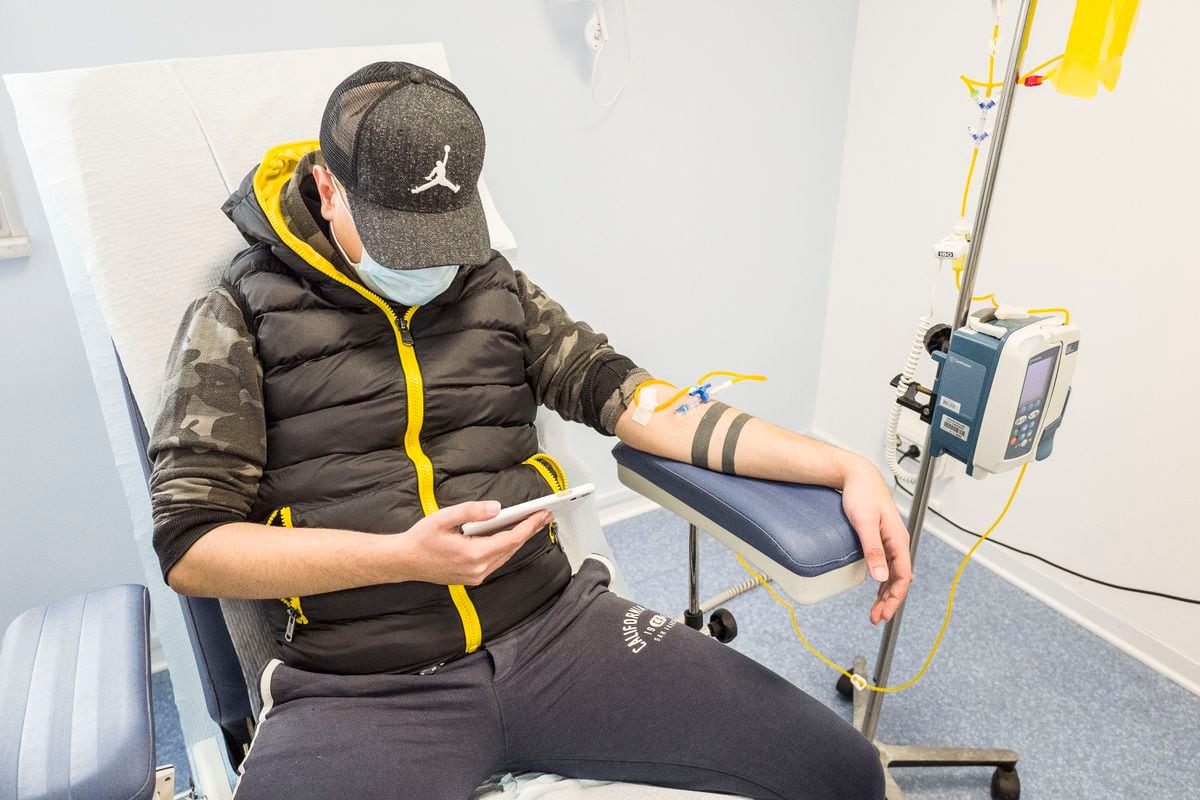One of the main risk factors for colon cancer is age: it is more frequent after the age of 50, so from that moment all people should have routine tests (such as fecal occult blood test and / or colonoscopy). However, those who have a family history or experience symptoms need to start monitoring themselves earlier.
On that last point warns a recent study that identified four "red flags", symptoms or warning signs, which are associated with a high risk of developing early-onset colon cancer, that is, before the age of 50.
These warning signs, say the authors of the study published in the Journal of the National Cancer Institute, do not have to be underestimated either by those who suffer from them (who should consult early, regardless of their age) or by health professionals who, in the presence of symptoms, should evaluate whether diagnostic studies are necessary.
Colon cancer: four warning symptoms
Researchers at Washington University in St. Louis (WUSTL) and the University of California, San Diego (UCSD), analyzed anonymized health insurance data from more than 5000,<> patients with early-onset colorectal cancer (CRC) and compared it to a control group (i.e., cancer-free).
What did they find? That nearly 20% had experienced symptoms between three months and two years prior to diagnosis. From a list of 17 prespecified signs, the authors identified four "red flags" that were associated with increased risk: abdominal pain, rectal (anal) bleeding, chronic diarrhea, and iron-deficiency anemia.
They also found that having just one symptom nearly doubled the risk compared to the general population (represented by the control group), having two symptoms increased it by more than 3.5-fold, and having three or more increased it nearly sevenfold.
"Colorectal cancer (CRC) is not simply a disease that affects older people," said lead researcher Yin Cao, of the Siteman Cancer Center at Barnes-Jewish Hospital and WUSTL School of Medicine.
"We want younger adults to be aware of these potentially very telling signs and symptoms and act accordingly, especially since people younger than 50 are considered to be at low risk and do not undergo routine colorectal cancer screening," he added.
Cao also called on health professionals not to underestimate these warning signs: "It is crucial to raise awareness among primary care physicians, gastroenterologists and emergency physicians," he emphasized.
"Many early-onset colorectal cancers are detected in emergency rooms, and there are often significant delays in diagnosing this cancer."
The researcher said that two symptoms in particular, rectal bleeding and anemia point to the need for studies and follow-up.
"It typically takes about three months to get a diagnosis from the time a person first goes to the doctor with one or more of the warning signs and symptoms we've identified," said first author Cassandra Fritz, an assistant professor of medicine in WUSTL's Division of Gastroenterology.
"But in this analysis, we found that some young adults had symptoms up to two years before their diagnosis. That may be part of the reason why many of these younger patients had more advanced disease at diagnosis than we normally see in older people who are screened regularly."
Colon cancer in young people
In 2021, the U.S. Preventive Services Task Force (USPSTF) lowered the recommended age for colorectal cancer screening from 50 to 45 years, after noting that in recent decades there has been an increase in colon cancer cases in younger people.
Obesity, sitting for a long time, metabolic syndrome, diabetes, poor diet, among other factors, contribute to this type of cancer appearing increasingly at younger ages.
According to the American Cancer Society, although the death rate from CRC has been falling for some decades among older adults as a result of regular colonoscopies and improved treatments, more young people are diagnosed with the disease at advanced stages.
That new reality suggests the urgency of recognizing symptoms as early as possible, the authors emphasized.
"Since most cases of early-onset colorectal cancer have been and will continue to be diagnosed after the presentation of symptoms, it is crucial to recognize these warning signs and symptoms immediately and make a diagnosis as soon as possible," Cao said.
"By doing so, we can diagnose the disease earlier, which in turn can reduce the need for more aggressive treatment and improve patients' quality of life and survival rates."
The adematous polyp can be removed and prevent the development of cancer. 3d illustration. Photo Shutterstock.
Colon cancer: prevention or diagnosis
Consulted by Clarín, the gastroenterologist at the German Hospital Lisandro Pereyra considered the study published in the NCI journal valuable and agreed with the conclusions of its authors.
"Although we already knew the alarm symptoms, it serves to understand cancers in young people a little better, but it is also useful as a strategy" in the framework of the discussion on whether or not to lower the age of onset of preventive controls.
And he explained: "Although the age of onset is not lowered in countries like ours and many others that still do not know if they have an increase in the incidence in young people, it is key to be attentive to try to improve the detection of early symptoms in those who already have them," said Pereyra, who is a member of Endoscopists of Buenos Aires (ENDIBA) and former trainer of the National Program for Cancer Prevention and Detection. Colorectal (PNCCR), in the area of quality in colonoscopy.
In Argentina, the recommended age to start colon cancer screening in the average-risk population (without history or symptoms) remained unchanged: it remains at 50 years.
According to the latest National Survey of Risk Factors (ENFR 2018), only one in three seniors between the ages of 50 and 75 claimed to have ever taken a CRC screening test, a very low number. The main objective of this strategy is prevention.
It is that colon cancer precedes it in 9 out of 10 cases a precursor lesion, the adenomatous polyp, which does not usually give symptoms, but offers the advantage of growing slowly, which gives a window of time to be detected and removed and thus prevent it from becoming a tumor.
"When we talk about prevention, at what age to start controls, we always talk about asymptomatic patients," Pereyra said. "But when there are symptoms," he said, "diagnostic studies are requested, because if there are, it is assumed that there may be a disease," regardless of the age of the person.
Symptoms such as stool bleeding, anemia, abdominal pain and chronic diarrhea "are strong predictors that may be showing that there may be a digestive disease (such as colon cancer) that needs to be investigated," he said.
Therefore, the key message is: with symptoms, there is no waiting. Age doesn't matter.
"The United States lowered it to 45 years, but it can also happen earlier. The person may be young, but if they have symptoms they have to be evaluated," Pereyra said.
Check list of symptoms den Check your colon.
Check your colon
In order to estimate the individual risk of developing colon cancer, Pereyra together with his colleague Leandro Steimberg and other Argentine professionals developed the intelligent tool Chequeátucolon, free and open access that, through two calculators, informs when to start the controls and on measures that help prevent CRC.
When entering, the first thing the user encounters is a checklist of symptoms, based on local guidelines. If you experience one or more, you should check it, "and the tool sends you to consult the gastroenterologist as soon as possible, who will analyze if you should have studies," Pereyra said.
The list of symptoms includes:
Changes in bowel habit. (You go from constipation to diarrhea or vice versa)
Bleeding from the tail
Blood mixed with stool
Prolonged belly pain over time without improvement with treatment
Anemia (Low red blood cells)
Lack of appetite
Paleness or yellowing of the skin and mucous membranes
Unexplained weight loss
Diarrhea lasting more than a month
- Extreme fatigue
Since its launch in March 2022, Chequeátucolon received some 55,20 consultations, of which almost 500,50 were from people under 4 years of age: 10 out of 38 (<>%) reported having at least one alarm symptom.
Of those, 18% suffered fecal bleeding, a similar proportion of recurrent abdominal pain, 8% anemia and 4% chronic diarrhea, the "red flags" mentioned in the article published in the Journal of the National Cancer Institute.
These data do not reflect the real frequency of symptoms in young people because the sample is composed of individuals who entered Chequeátucolon moved by some type of concern, "but for us to be able to detect that number of patients and advise them to make a medical consultation is very important," Pereyra concluded.
***
➪ Do you have any questions about health and wellness that you would like us to address in section notes? Enter the Clarín Help Center by clicking here, enter Message to the newsroom and then to Questions to Good Life. Write us your inquiry and send. Ready!
See also






